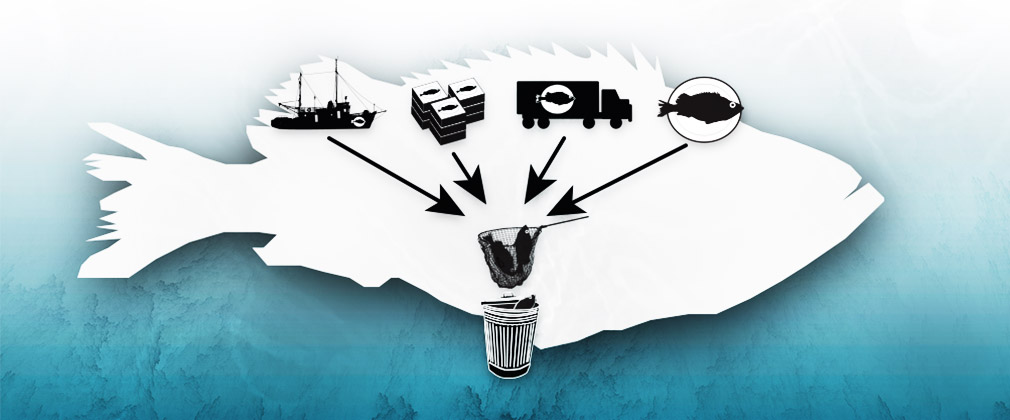Seafood Waste & Resource Use
Why is this study important?
Nutritionists recommend that we eat a lot more seafood—about twice what Americans currently eat on average. While this may be good health advice, it’s alarming from a production perspective.
Supplies of wild seafood are limited by overfishing and habitat destruction. In addition, harvesting the fish is expensive and can lead to high energy use. Farmed seafood (aquaculture) requires a great deal of energy, water and feed. Moreover, we waste nearly half of the US seafood supply. As global population grows, the challenge of meeting recommended seafood consumption levels will grow ever more elusive without focused efforts to improve efficiency.
What will the study do?
This study aims to understand the best opportunities for resource savings in seafood. To get there, we first need to better understand where and how water and energy are used throughout the seafood supply chain. We will gather data from fishers, fish farmers, processors, retailers and restaurants, starting across the globe and tracing paths all the way to our plates in the US. We’ll also gather information about how and why seafood gets wasted across the supply chain, including by consumers. We will research interventions seen as feasible and cost effective. To help identify priorities, we’ll estimate the benefits (energy and water saved) and costs of a set of interventions, and then we’ll share the findings with those who can use them to bring about change.
Who is doing the study?
The researchers are Roni Neff (principal investigator), Dave Love, Liz Nussbaumer and Erin Biehl from the Johns Hopkins Center for a Livable Future (CLF); Jillian Fry from Towson University; Lekelia Jenkins, Stacia Dreyer and Gabrielle Lout from the Arizona State University; and Mark Brown, Frank Asche, Jim Anderson, Ly Nguyen and Silvio Viglia from the University of Florida. The researchers will collaborate with aquaculture and fisheries industry representatives, seafood supply chain businesses, regulators, NGOs, and consumers.
How is the study funded?
The research is funded by the US Department of Agriculture National Institute of Food and Agriculture, through the Innovations at the Nexus of Food, Energy and Water Systems (INFEWS) initiative (Award #2018-67003-27408).
Notes from the Field: INFEWS
CLF News Release
Related CLF Studies
- Global Shift in Farmed Fish Feed May Impact Nutritional Benefits Ascribed to Consuming Seafood (2016)
- Nearly Half of U.S. Seafood Supply is Wasted (2015)
